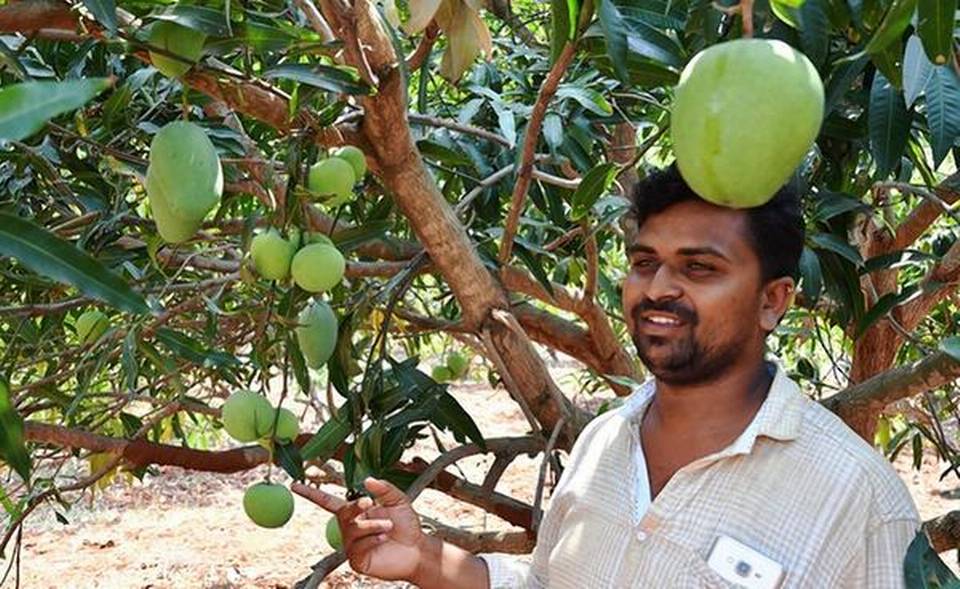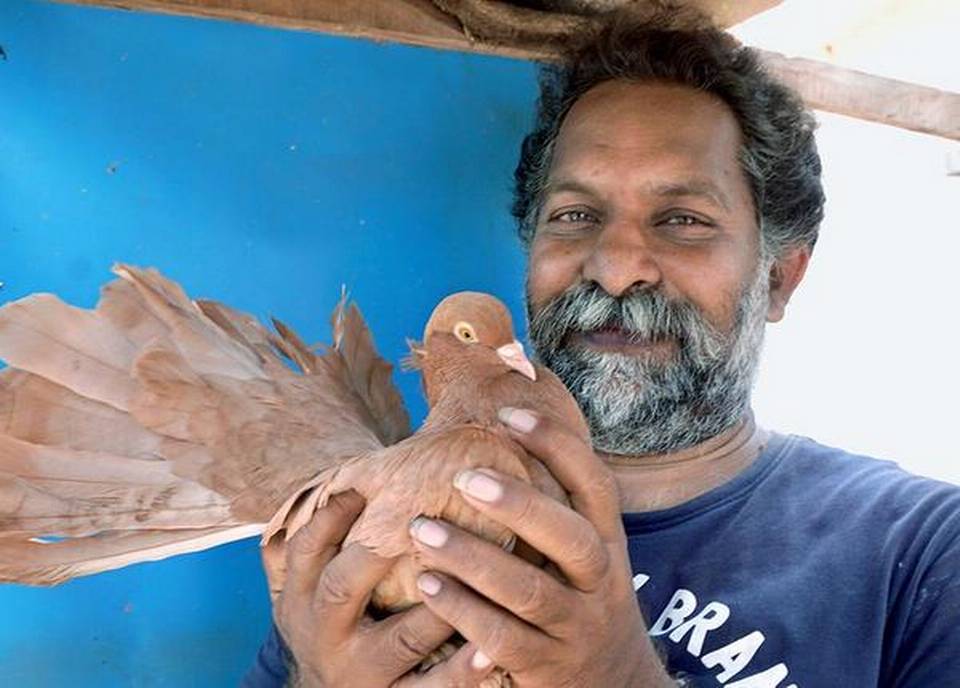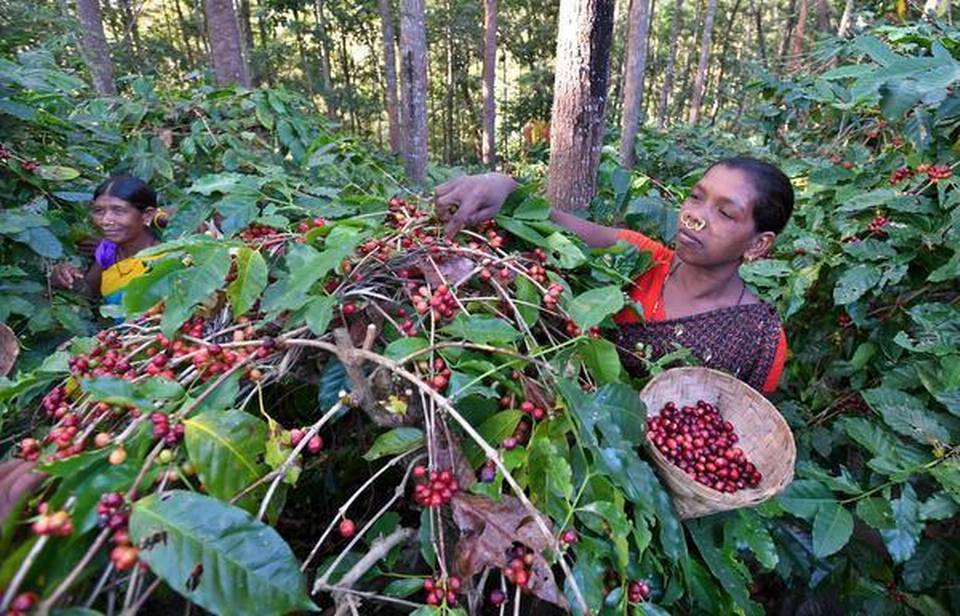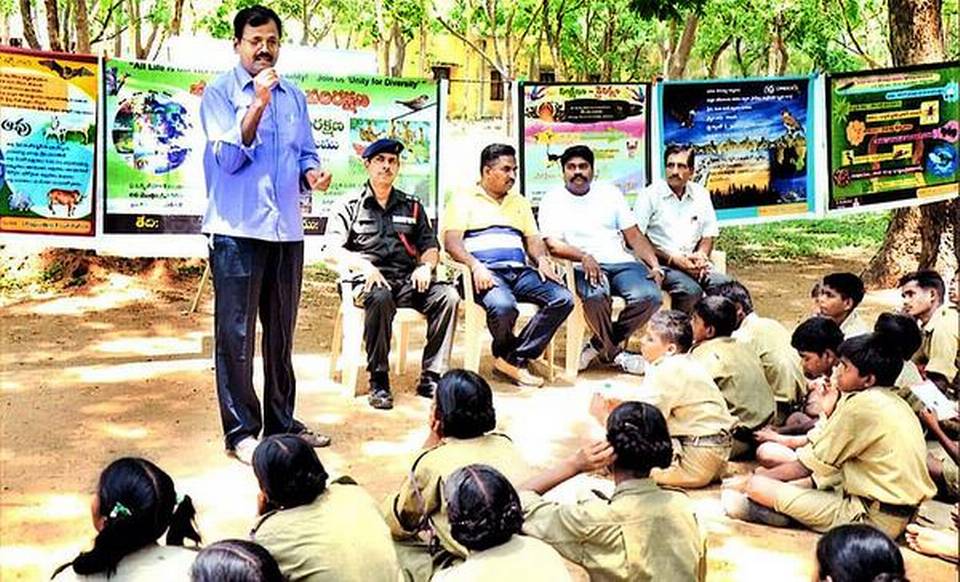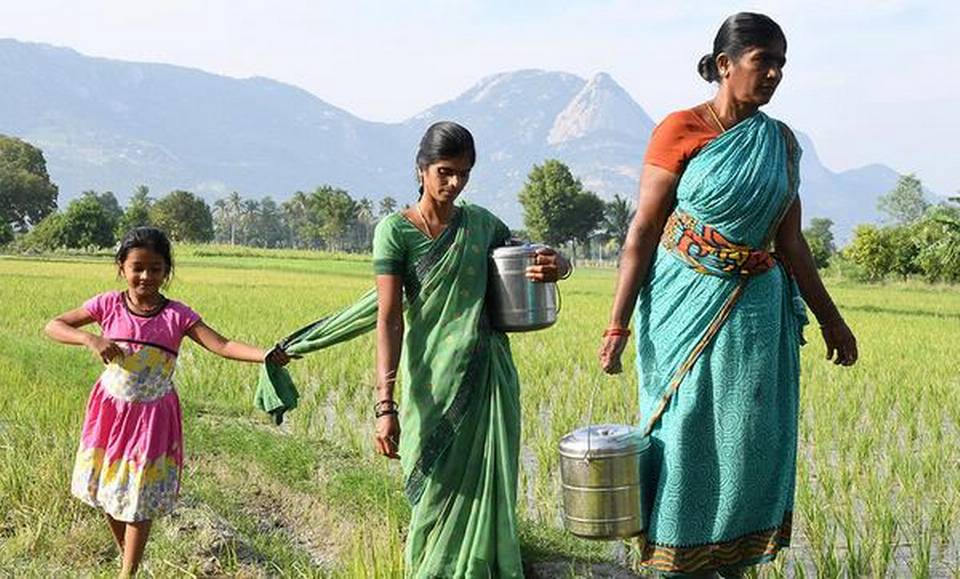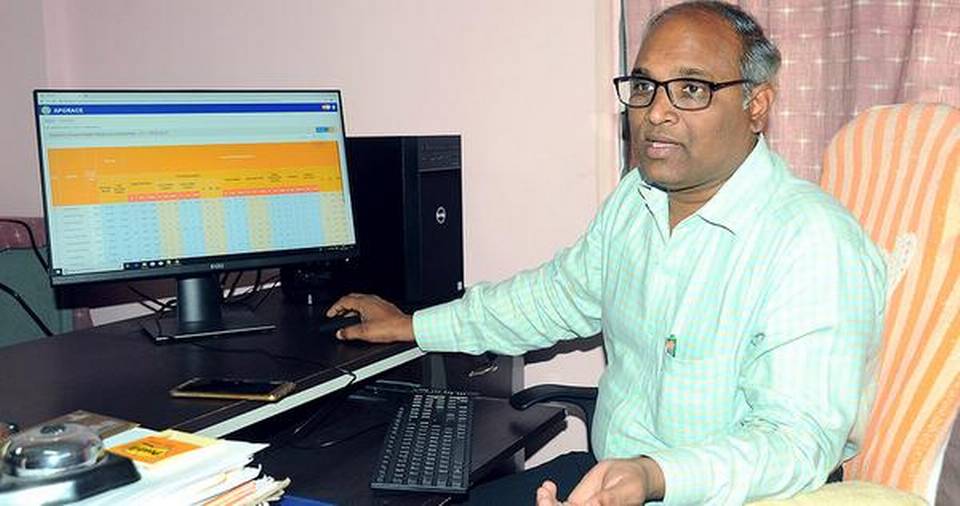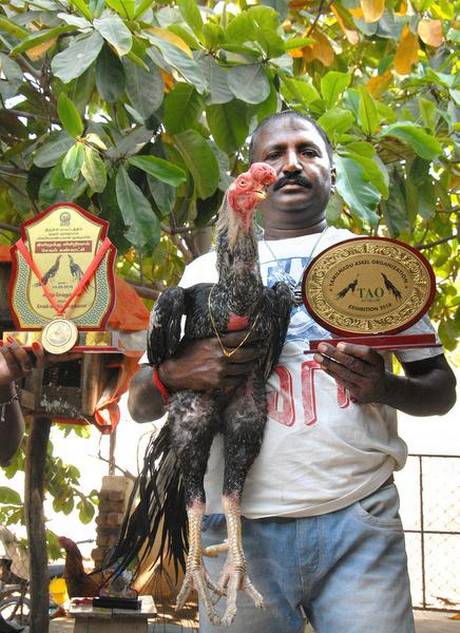Before Shreeja entered her life, middle-aged Gangamma of Palamaner mandal in Andhra Pradesh’s Chittoor district had to be content with the daily drudgery of maintaining her barn and selling the milk from her cows to a private supplier. And that came with the attendant problems of first realising payments from the buyer, and once the money was received, risk having the cash commandeered by a dominant male member of the family — father, husband, son or father-in-law.
But once Gangamma joined the dairy cooperative, the Tirupati-based Shreeja Mahila Milk Producer Company, life changed unimaginably for the better. Along with an army of more than 83,000 women, she is now a proud co-owner of a dairy that not only procures 3.5 lakh litres of milk every day but has become a ‘game-changer’ in the milk-rich Chittoor district.
Shreeja, arguably the world’s largest dairy that is exclusively owned by women, was established under the emerging concept of a ‘producer company’ in September 2014. Backed by the National Dairy Development Board (NDDB), Shreeja is considered a miniature of Amul — every supplier here becomes a shareholder, or conversely, milk is procured only from shareholders. As a result, the shareholder base has spread across the State’s three southern districts of Chittoor, Anantapuram and Nellore besides the bordering areas in Tamil Nadu and Karnataka. The cooperative principles of democratic governance and autonomy are also strictly adhered to. Women are not just shareholders, but also handle key positions on the board, as 11 of them are always on the 15-member governing board on a rotation basis, apart from three expert directors and a Chief Executive Officer.
The advantages in this ‘all women’ dairy are many. “First, it is a giant leap towards ensuring women’s empowerment in the countryside,” Shreeja’s CEO Jayatheertha Chary told The Hindu.
A great recognition
“Secondly, it recognises the services of the women who are actually involved in milking and cattle management. Thirdly, when suppliers and owners are the same, there is no scope for adulteration as it adversely impacts the yield, the profit and thus their dividend,” he added.
Prior to the establishment of the cooperative, incomes were largely impacted by arbitrariness in calculation of fat and SNF percentage, besides human errors in weighing. The payments, when released, never reached the women. Shreeja’s entry into the dairy landscape changed everything.
“Payment is made once in fifteen days, which gets deposited straight into my bank account, making our men look to us for petty cash”, Lakshmi Devi, resident of a village in Tirupati rural mandal, said with a wide grin. Transparency in transactions is ensured as data on the procured milk is processed real-time and the amount payable is arrived at right in front of the women.
Initially, there was substantial resistance from the men, who demanded payment to them in cash. But the company, as part of its avowed policy of ensuring women’s empowerment as well as a commitment to ‘Digital India’ initiative, stuck to bank transfers to the women’s accounts. The men were soon left with little choice but to accept the change. And seeing the success of the initiative, they are now happy with the savings generated for their families.
The handling of milk was resolved with the use of technology. Milk gathered from the 2,400 pooling points are shifted to a centrally-located Bulk Milk Cooling Unit (BMCU), which can handle up to 5,000 litres. When the volume and distance increases, the procured milk is sent to a bigger Milk Chilling Centre (MCC) having a capacity of 20,000 litres.
While collection details were earlier sent to the corporate office through pen drives, the data is now received online through GPRS-enabled units.
Frequent power cuts no longer pose a grave threat to the cooling units, after the company decided to solar-power the entire setup.
Going retail
Shreeja processes the milk it procures at Balaji Dairy, an NDDB-operated unit in Tirupati. As much as 80% of the milk is sent to New Delhi-based Mother Dairy through railway containers. With a procurement channel firmly in place, the company is now eyeing ‘real visibility’ through retail market presence. Apart from supplying to external agencies, Shreeja is now mulling production of curd, buttermilk, lassi, sweets, yoghurt and flavoured milk as part of a plan for value addition. There are currently four outlets in Chittoor and plans are afoot to open one in Tirupati.
“Like Amul, we too plan to have a little girl as our brand ambassador, whose icon will feature on our packets”, said Mr. Chary.
Shreeja also regularly trains women in barn hygiene and cattle management, works in tandem with the local veterinary officer to identify diseases and conducts deworming camps thrice a year. The company has also arranged micro insurance and accident insurance to the women and animal insurance for the cattle — the cows are ear-tagged with a unique code. When eight of the 4,000 animals insured in the last five months died, the owners were not burdened as they received fair compensation on their claims.
With Shreeja now aiming to get itself into the list of ‘Top 10’ dairy enterprises in India by the year 2025, the company has invested in capacity building. Given that women get more involved when they perceive ownership and as it takes a lot of effort to ensure transformation of a homemaker into a corporate decision maker, counseling sessions are held to aid this ‘supplier-to-owner’ mental transformation.
source: http://www.thehindu.com / The Hindu / Home> News> States> Andhra Pradesh / by A.D. Rangarajan / Tirupati – February 25th, 2018
